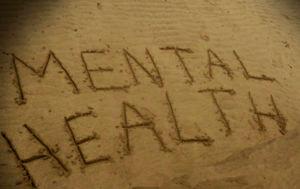

Says social stigma breeds institutionalised stigma, discrimination
By Sola Ogundipe
As Nigeria joined the rest of the world to mark this year’s World Mental Health Day, October 10, Nigerians have been urged to shun all active and passive acts of stigma and discrimination against people with mental health disorders saying it does more harm than good.
Africa’s premier celebrity psychiatrist and leading mental health advocate and coach, Dr Maymunah Kadiri, who called for an end to stigmatisation of people with mental illnesses, explained that social stigma, if not checked, often leads to institutionalised stigma and discrimination against mental health patients.
Kadiri, who is the Founder/Medical Director and Psychiatrist-in-Chief, Pinnacle Medical Services, Lagos, also tasked people suffering from mental illnesses to desist from self-perceived stigmatisation such as negative attitudes and internalised shame about their own condition.
READ ALSO: COVID-19 lockdowns, fear of infection, worsening mental health of Nigerians — Experts
“Stigma is when someone views you in a negative way because you have a distinguishing characteristic or personal trait that’s thought to be, or is, a disadvantage (a negative stereotype). Unfortunately, negative attitudes and beliefs toward people who have a mental health condition are common.
“Discrimination may be obvious and direct, such as someone making a negative remark about your mental illness or your treatment. Or it may be unintentional or subtle, such as someone avoiding you because the person assumes you could be unstable, violent or dangerous due to your mental illness. You may even judge yourself,” Kadiri stated.
Explaning further, the psychiatrist said the stigma associated with mental illness can be social stigma or public stigma that involves the negative or discriminatory attitudes that others have about mental illness, and self-perceived stigma or self-stigma that refers to the negative attitudes, including internalised shame, that people with mental illness have about their own condition.
According to her: “Institutional stigma, is more systemic, involving policies of government and private organisations that intentionally or unintentionally limit opportunities for people with mental illness. Examples include lower funding for mental illness research or fewer mental health services relative to other health care.
“Stigma not only directly affects individuals with mental illness but also the loved ones who support them, often including their family members,” she remarked.
According to her, common signs of stigma include: “Paying more attention to the symptoms and effects of mental illness than you do on other aspects of yourself.
“Catch yourself over- thinking the words, actions, and nonverbal behaviour of others, knowing that you’re not measuring up; notice self-derogatory thoughts running through your mind among others.
“Don’t let stigma create self-doubt and shame, don’t isolate yourself or equate yourself with your illness. Then join a support group like local and international groups. Get help at school and speak out against stigma. Also pay more attention to the symptoms and effects of mental illness than you do on other aspects of yourself, ” she counselled.
She identified some of the harmful effects of stigma as reluctance to seek help or treatment, lack of understanding by family, friends, co-workers or others, fewer opportunities for work, school or social activities or trouble finding housing, and bullying, physical violence or harassment.
Others are health insurance that doesn’t adequately cover mental illness treatment, and the belief that you’ll never succeed at certain challenges or that you can’t improve your situation.
The post Stop stigmatisation of mental health patients, Psychiatrist charges Nigerians appeared first on Vanguard News.
0 Commentaires